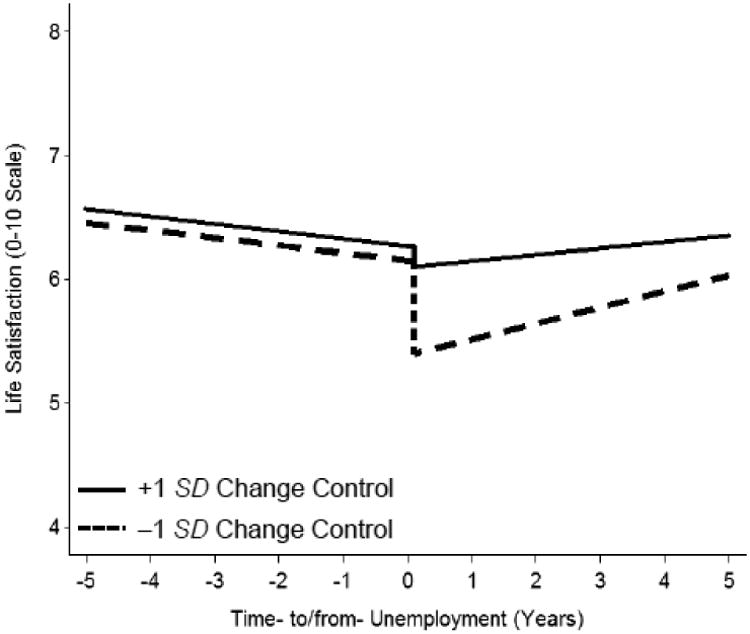Figure 2.

Illustrating the predictive effects of unemployment-related change in perceived control for reaction and adaptation in life satisfaction in relation to unemployment. Participants who reported less steep unemployment-related declines in perceived control (solid line; +1 SD change in control) showed fewer declines in life satisfaction with unemployment and reported higher levels of life satisfaction in the years following unemployment than those who reported steeper unemployment-related declines in perceived control (dashed line; −1 SD change in control). We note that the depicted difference between the post-unemployment slopes is not significant.
